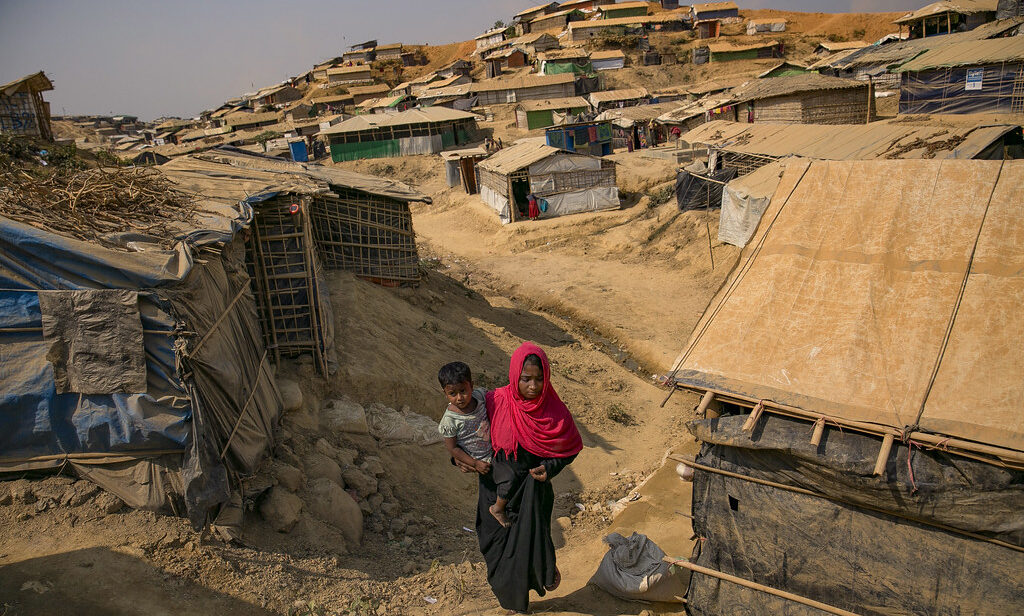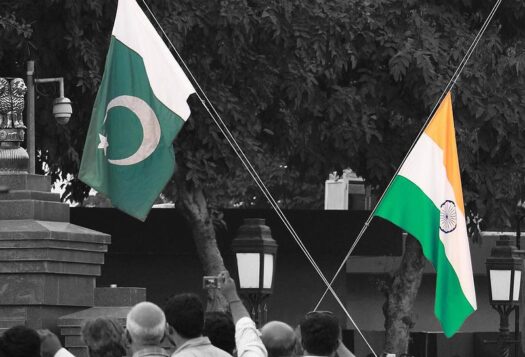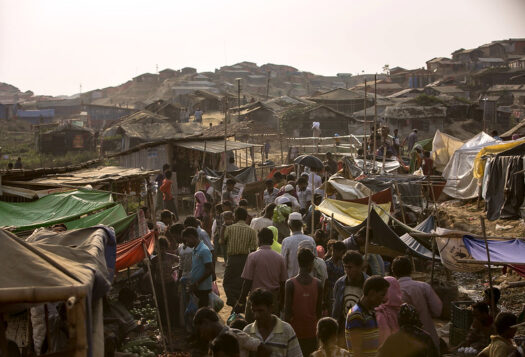
On 25 August 2023, 1.3 million Rohingya refugees residing in southeastern Bangladesh observed ‘Genocide Day.’ This marked the 6th anniversary of their mass expulsion from northern Rakhine by the Tatmadaw, the Myanmar Armed Forces. The Rohingyas are one of the most persecuted ethnic minority groups in the world and the international community has so far failed to uphold their rights, allowing flagrant violations of international law.
According to Article 2 of the United Nations (UN) Charter, member-states of the UN are to refrain from interfering in the internal affairs of one another. However, since the Rohingya community has been forced to take refuge in many different countries, the issue concerns the international community at large and warrants interference. Nearly 1.3 million Rohingyas have taken shelter in Bangladesh over the past five decades, while hundreds of thousands are living as refugees in Pakistan, Saudi Arabia, Malaysia, the United Arab Emirates, and India. The Myanmar government, whether in its military or civilian form, has been persecuting Rohingyas for decades and has blatantly violated scores of international laws in the process.
Violations of International Law by the Myanmar Government
Since the independence of Myanmar in 1948, the Rohingyas have been subjected to deliberate political, legal, economic, cultural, and social discrimination. According to Article 2 of the 1948 Universal Declaration of Human Rights (UDHR), Articles 26 and 27 of the 1966 International Covenant on Civil and Political Rights (ICCPR), and Article 1 of the 1969 International Convention on the Elimination of All Forms of Racial Discrimination (ICERD), such discrimination is strictly forbidden.
In late 2016, the Myanmar government began a new crackdown, which culminated in clearance operations against the Rohingyas in response to an attack on Myanmar security forces by Rohingya insurgents.
In late 1977, the Tatmadaw, along with Burmese immigration officials, launched Operation Nagamin against the Rohingyas. Rooting out ‘foreigners’ and ‘illegal immigrants’ was used as a justification for the Operation. The Burmese troops carried out murder, rape, and other atrocities against Rohingya civilians, and forcibly evicted them from their homes, forcing between 200,000 and 250,000 Rohingyas to flee to Bangladesh. In October 1982, the Burmese government issued the Burmese Citizenship Act, excluding the Rohingyas from citizenship and institutionalizing anti-Rohingya discrimination. This was a violation of Article 15 of the UDHR, which clearly states that none should be arbitrarily deprived of his or her nationality. In 1991, the Tatmadaw launched another crackdown on the Rohingya civilians, repeating the pattern of 1977–1978.
In late 2016, the Myanmar government began a new crackdown, which culminated in clearance operations against the Rohingyas in response to an attack on Myanmar security forces by Rohingya insurgents. According to a report by the Ontario International Development Agency, during this campaign of terror, around 25,000 Rohingyas were killed, more than 18,000 Rohingya women and girls were subjected to rape, some 34,000 Rohingyas were burnt alive, and over 114,000 Rohingyas were tortured.
According to Article 2 of the 1948 Convention on the Prevention and Punishment of the Crime of Genocide, killing, causing serious physical or psychological harm, and creation of conditions designed to bring about the destruction of any national, ethnic, racial, or religious group are acts of genocide. In addition, according to the UN Security Council (UNSC) Resolution 1820 adopted in 2008, mass rape is an act of genocide. The Myanmar government has perpetrated all these atrocities against the Rohingyas, and in accordance with international law, this constitutes a deliberate genocide against the Rohingya people.
The Role of EAOs, Citizens of Myanmar, and the International Community
Since 1948, northern Rakhine witnessed the rise of several ethnic armed organizations (EAOs) in response to the persistent oppression of the Rohingyas. These EAOs had different aims, including integration into East Pakistan, autonomy within the Myanmar state, and national self-determination. Between the 1970s and the 1990s, a number of Rohingya EAOs, including the Rohingya Liberation Army (RLA), the Rohingya Solidarity Organization (RSO) and the Arakan Rohingya Islamic Front (ARIF), were active against the Myanmar government. The Arakan Rohingya Salvation Army (ARSA) has been active since the early 2010s, and the RSO was reactivated following the 2021 coup d’état in Myanmar. The Tatmadaw-controlled Myanmar government responded to the insurgency by repeatedly launching brutal crackdowns on the entire Rohingya population, irrespective of their political affiliation.

Tragically, the rest of Myanmar’s citizens have reacted to the decades-long persecution of the Rohingyas with inaction, and in some cases, with enthusiasm. Buddhist nationalist organizations have long viewed the Rohingyas as a ‘demographic threat’ and cheered on the Tatmadaw’s atrocities against the Rohingyas. In addition to the ethnic Bamars, who constitute the majority of Myanmar’s population, ethnic Rakhines have also been opposed to the Rohingyas.
Several high-level UN officials, including the High Commissioner for Human Rights Zeid Ra’ad al-Hussein and the Assistant Secretary-General Andrew Gilmour, have characterized the persecution of Rohingyas as a ‘textbook example of ethnic cleansing.’ In November 2019, the Gambia, backed by the Organization of Islamic Cooperation (OIC), filed a case against Myanmar at the International Court of Justice (ICJ), accusing the Myanmar government of perpetrating genocide against the Rohingyas. The case was supported by the United States, the United Kingdom, the European Union, and Canada. In addition, an Argentine court, under the principle of universal jurisdiction, is probing whether Myanmar conducted a genocide against the Rohingyas. Furthermore, the United States has imposed limited sanctions on Myanmar for its atrocities against the Rohingyas and recognized the atrocities as a ‘genocide’ in March 2022.
However, these actions have proved insufficient in resolving the Rohingya crisis. The Tatmadaw-controlled Myanmar government has been dragging its feet over the repatriation of the Rohingyas since 2017 and is unlikely to admit its culpability in genocidal actions. Despite issuing some promising statements, the opposition NUG has not yet made any concrete steps towards ensuring justice for the Rohingyas.
The rest of Myanmar’s citizens have reacted to the decades-long persecution of the Rohingyas with inaction, and in some cases, with enthusiasm.
Instead of just issuing verbal condemnations, the international community should take concrete measures, including the imposition of comprehensive sanctions on Myanmar to hold those who are complicit in the Rohingya genocide accountable. Finally, if Myanmar fails to ensure justice for the Rohingyas, the international community should treat the Rohingya crisis as a threat to international peace and security and undertake necessary actions against the Myanmar government in accordance with the principles of the UN Charter.
Conclusion
Myanmar is a member of the UN, the International Court of Justice, and the International Labor Organization. It is also a party to the 1948 Genocide Convention, but it has overtly violated the treaties, conventions, and declarations of all of these institutions by persecuting the Rohingyas. The international community is duty-bound to protect populations from genocide, war crimes, ethnic cleansing, and crimes against humanity.
However, Myanmar has been flouting international law with near impunity for decades by brutally persecuting the Rohingya civilians. Ensuring accountability for the genocide against the Rohingyas and facilitating their repatriation will be welcome steps on the part of the international community.
Moreover, the Rohingyas should not remain stuck in refugee camps for the foreseeable future. International law provides them with the right to return to their homeland. It should be noted that the overwhelming majority of the Rohingyas are in favor of returning to their homeland, on the condition that their safety should be ensured. By facilitating the delivery of justice and ensuring their return the international community could end the suffering of the Rohingyas and uphold international law.
Also Read: Opportunities for India-Indonesia Cooperation on Myanmar.
***
Image 1: Rohingya refugee camp in Bangladesh via Flickr.
Image 2: Rohingya refugees in Bangladesh via Flickr.


